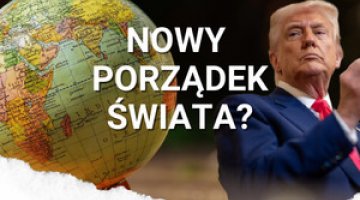Russia’s response to Ukrainian sanctions
The Russian government imposed economic sanctions on Ukraine on 1 November by way of a decree passed by the president of the Russian Federation on 22 October. According to the document, the funds, securities and assets of selected Ukrainian entities will be frozen in the territory of Russia, and these entities will not be able to transfer capital from Russia. The restrictions have been imposed on 322 natural persons from Ukraine, including senior state officials (among them the minister of Internal Affairs, the minister of Defence and the secretary of the Security and Defence Council), judges, politicians (126 members of the Ukrainian parliament and the former prime ministers Yulia Tymoshenko and Arseniy Yatsenyuk), representatives of law enforcement agencies and business circles, including the CEO of Naftogaz Andriy Kobolyev, and most Ukrainian oligarchs. The sanctions have also covered 68 corporate entities based in Ukraine, including one of Ukraine’s largest chemical plants, Dniproazot (owned by Ihor Kolomoyskyi), the energy firm Geo Alliance owned by Viktor Pinchuk and the truck manufacturer AutoKrAZ owned by Kostyantyn Zhevago.
According to the National Bank of Ukraine, the sanctions will not affect the country’s macroeconomic stability. The Ukrainian deputy minister of Finance, Serhiy Verlanov, has announced that calculations of possible losses resulting from the sanctions will be made and published in a month.
As a reaction to the Russian restrictions, the Ukrainian president Petro Poroshenko concluded that being on the Russian sanction list was an honour “like a state decoration”, and his spokesman added that the presence of some of the president’s associates on the list meant recognition of their engagement in resisting the Russian aggression. According to the governing party, the Petro Poroshenko Bloc (PPB), the sanctions are an attempt to interfere with the election campaign ahead of the scheduled presidential election, to add credibility to pro-Russian candidates (meaning Yulia Tymoshenko). In turn, Tymoshenko accused the Presidential Administration of making moves in an attempt to discredit her and expressed her surprise that Roshen, a company owned by Poroshenko, was not on the sanction list. The Ukrainian Ministry of Foreign Affairs stated that the sanctions were a continuation of the Russian aggression against Ukraine and emphasised that they had nothing in common with international law.
Commentary
- The restrictions have been imposed by Russia in response to the regular enhancement of Ukrainian sanctions against Russia. The Ukrainian sanctions list is much longer than the Russian one and currently includes 1,748 individuals and 756 companies and organisations. By imposing the restrictions on Ukraine, the Kremlin is trying to put into practice its promise of a ‘symmetric response’ and thus demonstrate its principled policy towards Ukraine. However, it is worth noting that the Kremlin, at least since 2013, has consistently conducted an aggressive economic policy towards Kyiv. As a consequence of this, Ukraine has lost the greater part of its export market not only in Russia but also in the other post-Soviet countries (in particular, Kazakhstan, due to a ban on transit via Russian territory). The embargo on imports of Ukrainian food and agricultural products imposed in 2016 was especially painful. As a result of these moves bilateral trade has fallen dramatically. While in 2013, 23.7% of Ukrainian exports went to Russia, between January and August 2018, this was only 7.9%. As a consequence, Moscow’s ability to apply economic pressure on Ukraine is gradually falling.
- This is the first time the Kremlin has decided to introduce an official list of Ukrainian entities covered by sanctions; and it has a symbolic meaning, with a very clear pre-election context (a presidential election in Ukraine is scheduled for March 2019 to be followed by a parliamentary election held in autumn). The restrictions imposed are intended to demonstrate to the Ukrainian political and business elite the costs of Ukraine’s moves against Russia. Moscow hopes that the winners of the elections in Ukraine next year will adopt a policy that will be more beneficial for Moscow (including on Donbass) and that it will be possible to normalise relations on the conditions dictated by the Kremlin.
- A clear majority of Ukrainian political leaders who took power after the revolution in 2014 have found themselves on the Russian sanctions list, and some of them have a chance of success in the upcoming parliamentary election. In turn, there are hardly any representatives of pro-Russian groupings (with a few exceptions) on the list. However, the criteria for the imposition of restrictions on Ukrainian business are unclear. The sanctions have been imposed not only on oligarchs known to have pro-Western views and on the companies owned by them, but also on some companies owned by pro-Russian oligarchs (Dmytro Firtash).
- Most prominent members of the Ukrainian political class have reacted to the publication of the sanctions list in an ironic and mocking manner. Their calm reaction may be caused by the fact that it is unlikely that Ukrainian politicians and state officials own any major assets in Russia that could be frozen.
- A clear majority of the Ukrainian companies covered by the sanctions do not do business in Russia or do so to a very limited extent. Regardless of this, some sectors may feel the negative consequences of the sanctions. This concerns above all manufacturers of inorganic chemical products whose exports to the Russian Federation in the first eight months of 2018 reached US$391 million, which accounted for 16% of Ukrainian exports to Russia. This may be a response to the embargo on imports of synthetic fertilisers from Russia imposed by Ukraine in March this year. Metallurgical plants owned by Viktor Pinchuk and Ihor Kolomoyskyi will most likely also be affected. Even though there are no up-to-date data showing the degree to which these companies rely on the Russian market, metallurgical products still play an important role in Ukrainian exports to Russia (with a value of US$600 million in January–August 2018).





